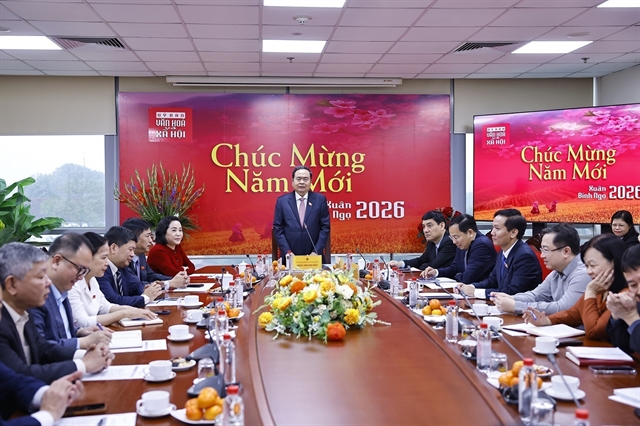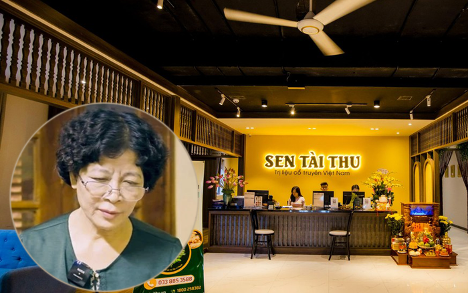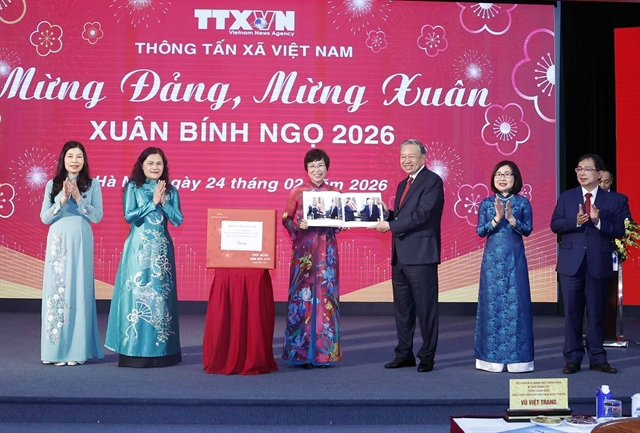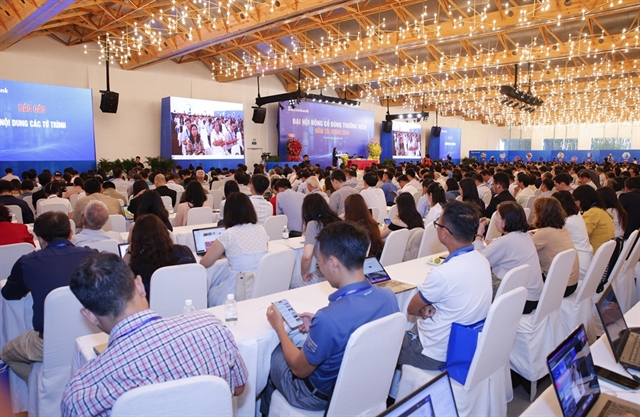 Economy
Economy
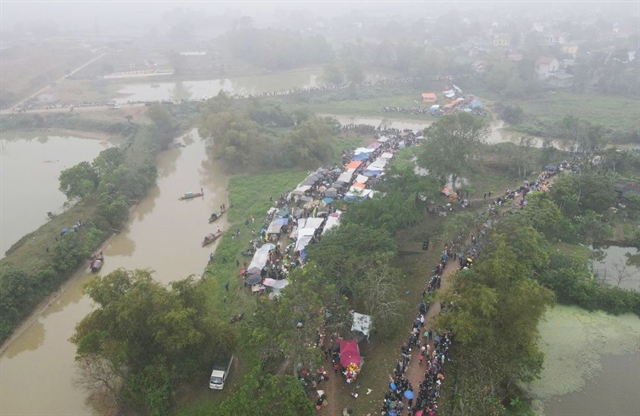
Mobile money services promote non-cash payments and help the poor living in mountainous and remote areas access services on the internet, Minister of Information and Communications Nguyễn Mạnh Hùng said at a two-day conference on financial inclusion held in Hà Nội on Thursday.
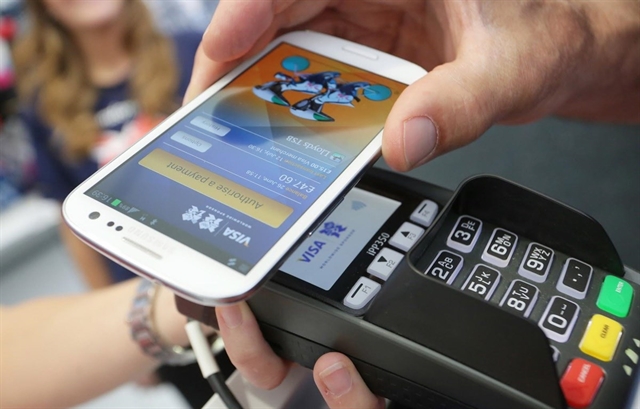
|
| Mobile money service will help transform telecom networks by creating a foundation for data, computing, digital content, and internet of things (IoT). — Photo vietnamplus.vn |
HÀ NỘI — Mobile money services promote non-cash payments and help the poor living in mountainous and remote areas access services on the internet, Minister of Information and Communications Nguyễn Mạnh Hùng said at a two-day conference on financial inclusion held in Hà Nội on Thursday.
The service allows users to transfer and receive money as well as make payments through mobile accounts for services such as health, education, finance, jobs and social welfare.
The scheme permits telecommunications firms to pilot a mobile money service not linked to consumers’ bank accounts.
If Việt Nam approves a trial run of the mobile money service this year, the country will be the 91st nation in the world operating the service, according to Hùng.
By the end of 2018, as many as 90 countries were accepting mobile money with up to 900 million users. The transaction value reached US$1.3 billion a day with an annual growth rate of 20 per cent. In Asia, the growth rate was 31 per cent. In many countries, half of the population uses mobile money.
Although Việt Nam was implementing the service at a later date, the country still had advantages, Hùng said.
It is possible to learn from other countries's deployment and legal framework, he said. In addition, there are many large international organisations that regularly provide summaries and recommendations to help in mobile money development.
Hùng said that Việt Nam should deploy the service this year.
He added that Việt Nam has focused on start-ups and innovation, but has forgotten to develop payment platforms, one of the most important platforms.
"If we want a startup or a service to become popular among all people, a payment platform must be implemented. There is no means to do this better than mobile money," he said.
Although Việt Nam has had a mobile subscriber density of over 100 per cent for many years, the rate of people using credit cards is low, as 99 per cent of transactions below VNĐ100,000 are made in cash.
As a result, many people are excluded from the formal financial system, especially the poor in rural and remote areas.
Mobile money will also tap into the local rural market, digitising the agricultural value chain. It will also encourage the development of digital service operators and step up access to financial services.
The service was a convincing example of how telecom carriers can provide more platforms for wide-ranging services, apart from solely offering their traditional telecom infrastructure, he said.
The service would also create many new businesses in the digital field and technology startups. Mobile money would be the most popular method accepted by startups, contributing to a startup boom in Việt Nam.
It would also help transform telecom networks by creating a foundation for data, computing, digital content, and internet of things (IoT), he said.
However, the minister noted that many legal issues should be resolved for mobile money, and that challenges and risks exist, but the benefits are huge.
Some are concerned that if Việt Nam allows trial mobile money, telecom operators could also provide e-payment services through mobile money transfer services among subscribers, and become the new “competitors” of banks in the area.
However, Hùng said banks should not worry because such a service with small transactions prepares people to become future customers for banks.
He said that mobile money promotes access to financial services. In Kenya, after three years of implementation, the bank usage rate increased by 19 per cent.
Phạm Tiến Dũng, head of the State Bank of Việt Nam’s Payment Department, said the country’s two biggest telecom providers – Viettel and VinaPhone – are eligible to implement the mobile money service if it is approved by the Government this year. MobiFone is applying for a licence.
He said the central government was also considering a payment limit through mobile money services and plans to set the limit at VNĐ10 million ($430) per month. This would be an initial limit and would be adjusted following market trends.
The two-day conference aimed to provide a comprehensive view on mobile money, a technology that allows people to receive, store and spend money using a mobile phone.
It also shared experiences and lessons from the implementation of the service in many countries worldwide, and put forward recommendations for Việt Nam in a bid to enhance the country’s financial inclusion and support its digital transition. — VNS

